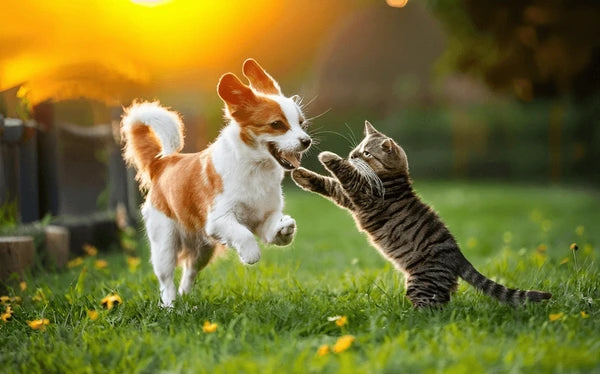
What Do We Mean by EU Standards in Pet Food Manufacturing?
Pet Food: Understanding EU Standards for Quality and Safety
When it comes to ensuring the safety and nutritional value of pet food, the European Union (EU) sets some of the highest standards in the world. The EU enforces comprehensive regulations to guarantee the quality and safety of pet food products, in contrast to Canada where there is no overarching regulatory framework specifically for pet food.
This article explores the processes involved in EU pet food production and highlights the benefits and assurances these standards provide.
The Lack of Regulation in Canada
Canada does not have dedicated regulations for pet food. While there are general guidelines under the Canadian Food Inspection Agency (CFIA) for pet food labeling and certain safety aspects, these are not as comprehensive or mandatory as the EU's stringent standards. This absence of specific regulation means that pet food in Canada may not undergo the same rigorous testing and quality assurance processes required in the EU (Food Safety).
Stringent Regulations and Ingredient Sourcing
The EU mandates strict guidelines for the sourcing of ingredients used in pet food. Examples include poultry that must be 100% cage-free, fish that must be sustainably sourced and often line-caught to ensure environmental responsibility, and animals that are raised and slaughtered humanely. These standards are deeply embedded in the EU's regulatory framework, ensuring that ingredients are of the highest quality and ethically obtained.
These rigorous sourcing standards contribute to the overall integrity of the pet food, aligning with the values of many conscientious pet owners. The humane treatment of animals and sustainable fishing practices mean that pet foods produced in the EU not only meet high nutritional standards but also adhere to ethical practices.
Comprehensive Quality and Safety Controls
In the EU, pet food manufacturing must comply with several layers of regulatory oversight. This includes the enforcement of hygiene and safety standards comparable to those for human food production. EU regulations cover everything from the operational requirements of pet food plants, to specific health and sanitary measures including the necessity for health certificates for trade and processing of meat products.
Regular updates to these regulations ensure that they adapt to scientific and technological advancements, maintaining the highest standards of safety and quality. This level of detail and regular review helps ensure that pet food produced in the EU is safe and nutritious for pets.
Farmina's Innovative Manufacturing Process
Farmina N&D, a well-known pet food brand, exemplifies these high EU standards. Unlike many other brands that extrude the entire kibble recipe into a dense, hard dough, Farmina employs a unique method. They extrude only the first three ingredients and then inject or cold press the remaining ingredients. This process results in kibble that is significantly more digestible, with a digestibility rate of 90% compared to the typical 80% for other kibbles. This higher digestibility translates to better nutrient absorption and overall health benefits for pets. These are just some of the reasons we at Bon-A-Pet-Treat! love and recommend Farmina.
Why Choose EU-Manufactured Pet Food?
EU-manufactured pet food stands out due to its rigorous standards and stringent regulations. Brands like Farmina showcase these standards through innovative manufacturing processes and strict adherence to ingredient sourcing guidelines.
For pet owners seeking reliable and nutritionally sound options, EU-manufactured pet foods offer a proven and trustworthy choice.
The commitment to quality, safety, and ethical practices ensures that pets receive the best nutrition possible, backed by scientific evidence and regulatory oversight. Choose EU-manufactured pet food for the highest assurance of quality and health benefits for your furry friends.
For more detailed information on the EU's regulations and standards for pet food, you can visit the European Commission's page on food safety (Food Safety) (FEDIAF | Home)(Farmina)
